Buying a Motorcycle for the Compulsive or Impulsive- Part II
Sure, Honda Hawks sell for $1,500 in Alabama, but you're in San Francisco, so you pay more. If you don't like it, live in Alabama. See how you like that!
Last month [Part I], we talked about figuring out which motorcycle you want and need. You've done all your research, talked to all your friends, and read all the message boards and FAQs online. You have your money, or at least your credit is sufficient to allow you your purchase. Now you just have to find your motorcycle. Just like finding your true love, your motorcycle is out there, waiting for you, and now you're going to find it, right? This is easy. I mean, it's easy to find your favorite brand of razors or dish soap, so you just walk on down to the motorcycle shop and buy it, right?
Well, we wish. The problem is that we motorcycle folks are thrifty types who like to feel we got the best deal. But is that buying new from a dealer, used from a dealer, used from a private party, or even a salvage title? Let's look at these different ways of finding our new true love.
Just like finding your true love, your motorcycle is out there, waiting for you, and now you're going to find it, right?
Saved From the Dead: Buying a Salvaged Bike
What that means is that the next owner has to create a new title for the vehicle, which will be marked as "salvage" by most state DMVs. Some states allow the title to be resurrected as "clean" after some kind of inspection, but most states, like California, don't. The motorcycle is forever marked as a salvage title vehicle, which seriously affects the value.
All a "total loss" means is that the cost to fix the damage would exceed the value (or sometimes, less than 1/2 the value) of the motorcycle. For a late-model sportbike, a "total loss" can be declared by an overworked insurance adjuster glancing at superficial damage caused by a low-speed low-side. I've seen salvage bikes with plenty of scuffing but still 100% safe and drivable.
I got into a Honda CBR600F4i with 2500 miles on it for $2800, or about 1/2 it's actual value. Sure, it needed instruments and a fairing, but I got all that stuff off of eBay for about $400. It's not pretty, but it beats walking- or paying $6000 for a clean titled used motorcycle.
Sometimes, though, there can be hidden problems the salvage yard knows nothing of. There's lots of "squids"- reckless, know-nothing pinheads- purchasing sportbikes brand-new to practice their stunting and street racing or God-knows-what. Sometimes the damage isn't apparent on the quick around-the-block type test ride most of us do, so really be careful here! Transmission damage makes a cheap sportbike completely unaffordable. These people mash gearboxes into oblivion and ignore maintenance, so test ride the bike or bring a mechanic with you before you buy one of these!
A note about gearboxes: sportbikes are designed to be light and easy to shift, so the transmission components, like shift forks and dogs are lightweight and easy to damage. Sometimes the damage isn't apparent on the quick around-the-block type test ride most of us do, so really be careful here! Transmission damage makes a cheap sportbike completely unaffordable.
Another factor to consider when purchasing a salvage motorcycle is titling it. Please be sure to research registering a salvage motorcycle before you buy. Your state might have such a draconian procedure to resurrect title that it might be more sensible to buy a clean titled bike. There might be expensive parts required to pass a safety check that aren't available used. Or, most importantly, your insurance company might not insure your Frankenstein's monster at all.
You really can save money and get a good motorcycle buying salvage, but it's easy to get fleeced, too. Salvage yard owners tend to be a little less customer-service oriented than motorcycle dealers (but I know there are exceptions, so please don't take offense!) and might take advantage of an uneducated seller with a big wad of cash. The bottom line is the same as making any other kind of purchase, only more so: do your research and be especially wary.
Second Hand Rose: Buying Pre-Owned from a Private Seller
The best advice I can think of about buying used from a private seller is this: make condition more important to you than price! It's rare for two identical year and model motorcycles to be more than $1000 apart in price, and that $1000 gets eaten up quickly by tires, ($400) chain and sprockets, ($300), steering head bearings, ($100), or just a good old-fashioned tune-up ($400+). I was besieged at the shop I worked at in San Francisco's inner city by customers looking for the $1000 motorcycle they would fix on the installment plan. That's not such a sound plan, economically. They would wind up dumping hundreds, even thousands of dollars into their 1980's zombie-bikes, and what would be the fruit of their labors? A $1000 motorcycle they spent $3000 on. It's better to buy a sound bike that only requires inexpensive routine maintenance than a Courtney Love-like beast that needs to have everything replaced.
There are some great websites with tons of technical information about inspecting used bikes, and you should check them out. If you have a choice, you should lean towards buying from a reputable, older person with some obvious standing in their community. They should appear stable, with a nice, clean garage. Avoid thin, pale people in black clothes with bad teeth unless you're in England. You should write a contract with a full understanding of all the terms of the deal.
Take the bike to a mechanic before you buy.
Take it to a shop that doesn't carry the brand you're interested in (unless the mechanic doesn't know how to work on that brand!): the shop might tell you the bike you're checking sucks so you'll buy a new one. This is usually a pretty big hassle, especially if you're considering a lot of different motorcycles. Ask the seller if he'll share the expense with you, or at least if he'll meet you at the motorcycle shop. His or her response will give you an idea of how trustworthy of straightforward they are.
More by Gabe Ets-Hokin



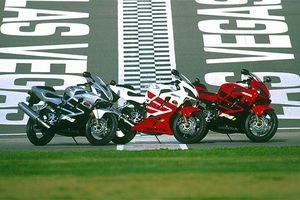





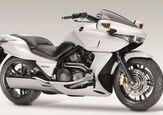

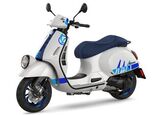

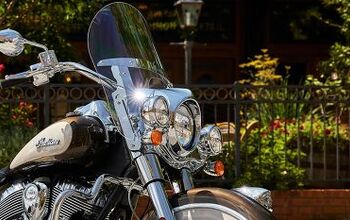
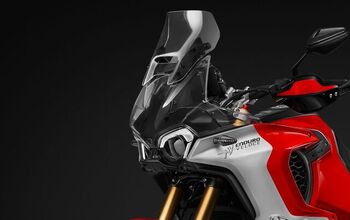

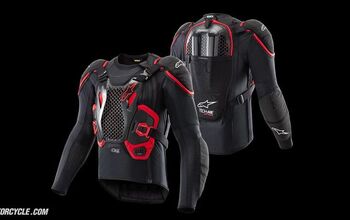


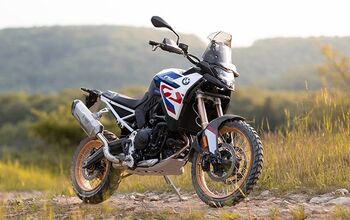
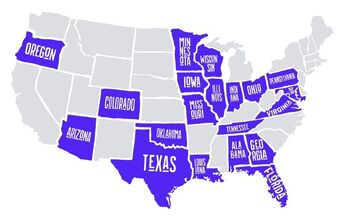

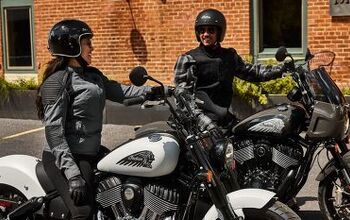


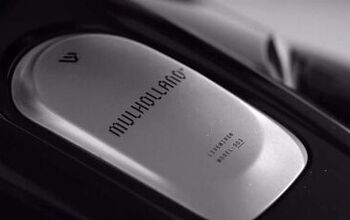


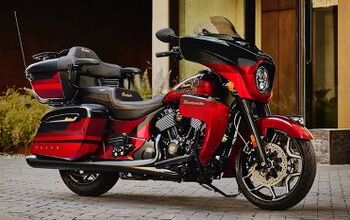
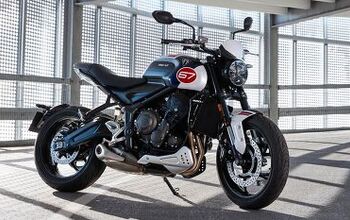

Comments
Join the conversation